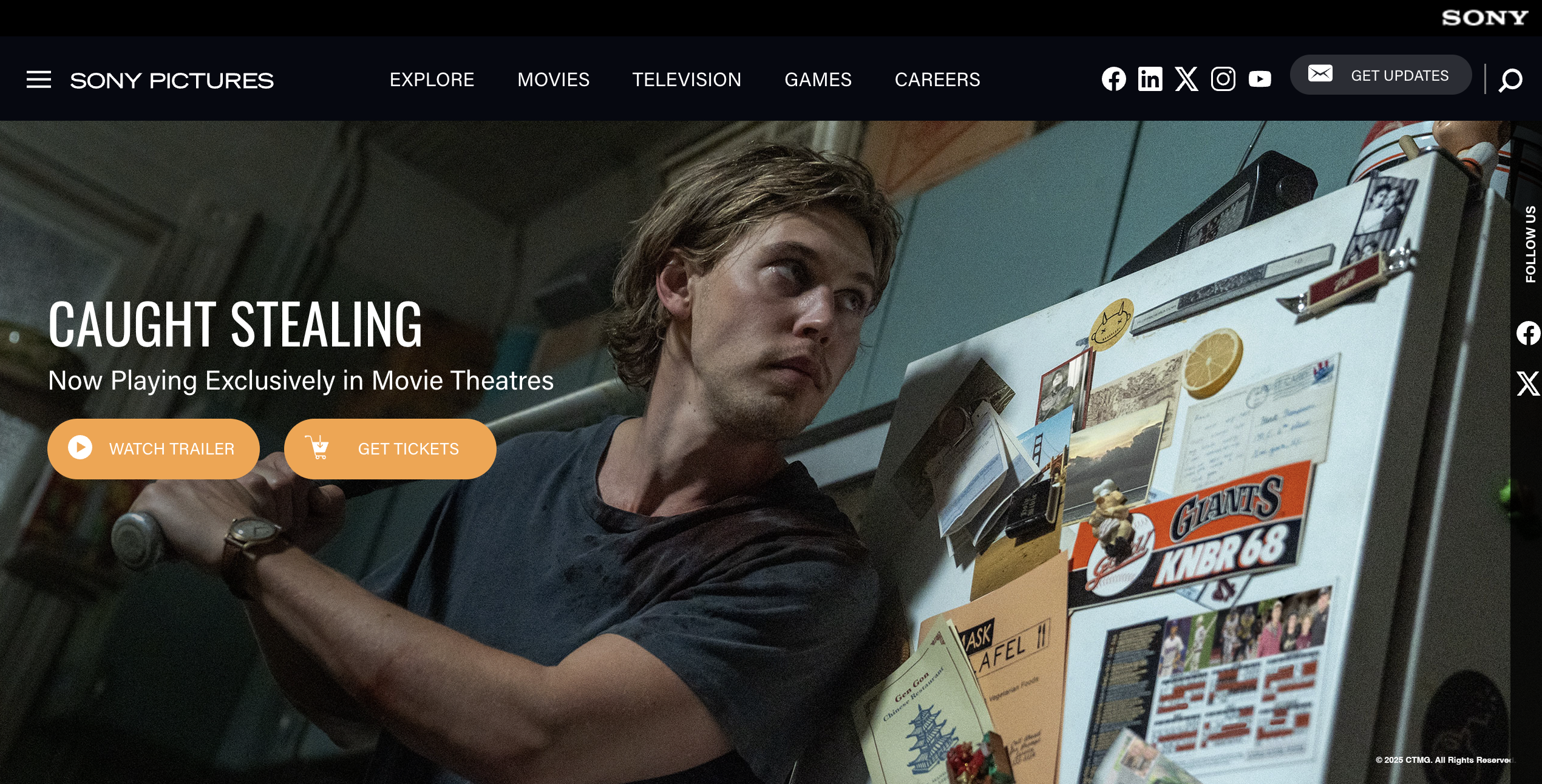Most top critics seem to like Caught Stealing, a dark comedy crime thriller written by Charlie Huston, directed by Darren Aronofsky, and set in the late 1990s New York City, but I expected, or wanted, more.
Henry “Hank” Thompson, a functioning alcoholic bartender, and former high school baseball phenom, who relocated to NYC after losing his professional baseball dream and his high school friend in a drunk driving crash, is asked by his neighbor Russ Binder to watch his cat while he unexpectedly goes to London. Hank’s paramedic girlfriend Yvonne brings Russ’s cat and litter box, and unbeknownst to them a key to drug deal money, into Hank’s apartment.
That key, and Russ’s disappearance, lead to confrontations with the Russian mob that costs him a kidney, a crooked detective Elise Roman who threatens his freedom, and some Hasidic drug-dealing brothers who later kill Yvonne to send Hank a message. Hank must avenge Yvonne’s murder, protect his West coast mother whom he daily calls, and extricate his remaining kidney and himself from this murderous mess, which he ultimately does by recreating the same kind of crash that killed his friend and his dream even though that was the first time he had driven since that tragic event so many years ago.
This movie seems like a love letter to 1990s NYC, which has a certain amount of audience appeal. This ambience, which was still evident when we lived there in the 2000s, is a testament to the successful technical features, and especially the sets, costumes, and lighting, that suggest an affection for the city and its culture at that time.
These establish a tone without compromising the pace, which is a credit to its director Aronofksy. At the same time, all the violence, as symbolized in the motif of pooling blood beneath dead characters, occasionally become distractions, and pull focus from the larger story.
That could be one reason why it might work better as the 2004 book by Huston even though the adaptation was done by the original author. Novels obviously allow readers to modulate violence or any other features in ways that don’t unproductively distance them from the narrative.
Nonetheless, the film intriguingly illustrates how authors establish crazy conditions for their characters and then enable them to escape these, which mostly work until they disruptively and distractingly don’t. For example, Hank, who has been mostly restrained, beats the crooked cop with his fists, and stabs her with a broken bat, but won’t shoot her, and doesn’t object with the Hasidic brothers do.
My biggest problem was the confusing conclusion, which leaves an odd aftertaste. Hank sends half of the money Russ was holding to his mother, and then he steals Russ’s passport, Elise’s retirement dream, and absconds to Tulum where he refuses a bartender’s beer offer, and instead asks for a club soda. Who got caught stealing what?
Many would agree that Hank murdered his neighbor and the two Hasidic drug dealers like he did his high school friend, and at least contributed to the murders of his girlfriend and the crooked cop. Some might also argue that he had his girlfriend and his current life, and perhaps even his professional baseball dream, stolen from him.
Perhaps the more plausible interpretation is that all these characters were caught stealing, and had their lives, literally or figuratively, stolen from them, as a result of drug deal that goes wrong after its banker disappears to attend to an ailing father. Only Hank, and his mother he hopes, emerge alive, and yet he has had to relinquish his life as he knew it although he might regain some semblance of it (and in the subsequent novels presumably does).
But why would he steal Elise’s retirement dream of relocating to Tulum? And what will he do there that he hadn’t done hundreds of miles from his high school tragedy in NYC?
Time for Hank will tell, and presumably does in the subsequent Henry Thompson novels Six Bad Things and A Dangerous Man by Huston. For us, it ends with the rolling credits and the reilluminated theater, which left me wondering whether we were merely entertained or had experienced something more.

Leave a Reply